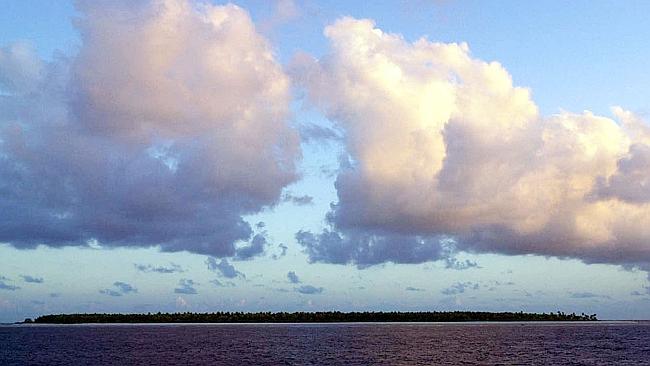Oceans taking brunt of climate change with acid levels rising, say scientists
SCIENTISTS say over-fishing, rising acidity levels and climate change are all contributing to the health of our oceans 'spiralling downward'.

The health of the oceans is "spiralling downward'' faster than previously thought as a result of climate change, pollution and overfishing, scientists have warned.
A key international assessment of climate change last week revealed the oceans are absorbing much of the warming and unprecedented levels of carbon dioxide caused by human activity such as burning fossil fuels.
Now experts are warning the impact of rising greenhouse gases combined with a range of other problems is far graver than previously thought.
Oceans are being hit by decreasing oxygen levels caused by climate change and increased nutrient run-off from agriculture and sewage, and are becoming more acidic as more carbon dioxide dissolves into the sea, both of which harm wildlife.
Warming, as the oceans absorb much of the extra energy being trapped by greenhouse gases, is set to reduce seasonal sea ice and lead to changes to sea layers, which will also cause lowering of oxygen levels.
Warming will also lead to increased venting of methane, a potent greenhouse gas, from the Arctic seabed, experts from the International Programme on the State of the Ocean (IPSO) and the International Union for Conservation of Nature (IUCN) said.
The "deadly trio'' of warming, deoxygenation and acidification is seriously affecting how productive and efficient the ocean is, with impacts throughout the chain of marine life, the scientists said.
In addition, continued overfishing is damaging the resilience of the oceans, and despite improvements in some areas, fisheries management is failing to halt the decline in key species and prevent harm to important marine ecosystems.
Last year the UN's Food and Agriculture Organisation (FAO) found that 70 per cent of world fish populations were unsustainably exploited, and almost a third of those (30 per cent) had collapsed to less than 10 per cent of unfished levels.
The scientists called for urgent action to limit temperature rises to less than 2C above pre-industrial levels.
They warned that current targets for carbon emission reductions are not enough to ensure coral reefs on which humans and wildlife depend survive increasingly acidic oceans.
###



